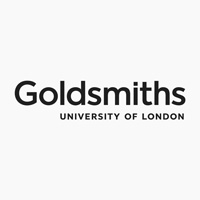fees waived
Politics, BA (Hons)
Goldsmiths, University of London, United Kingdom
Subject ranking
UK / THE 2025 56th
UK / Guardian 2025 57th
UK / CUG 2025 60th
Costs
food & rentS$24.9K / year
Entry requirements
Scholarships
Limited quantity
Information
Code
Intakes
Website (External)
Programmes
Information
Duration
2028
Politics addresses humanity's most pressing challenges, equipping students to evaluate and engage with them in a sophisticated, persuasive manner. At Goldsmiths, the BA in Politics extends beyond traditional government studies to explore how societies understand, communicate, and exercise power globally. Students develop critical skills through diverse topics like feminism, foreign policy, and human rights, while gaining insights into political theory, international relations, and non-Western perspectives. The programme includes practical elements, such as a third-year work placement with organizations like the Home Office, and access to events with renowned speakers.In the first year, core modules cover UK and European governance, political theory, and identity studies, with options like world politics. The second year includes researching politics, modern theory, and electives in areas such as Chinese politics or climate change. The final year features a research dissertation and advanced modules on topics like migration or sustainable development. Assessment varies by module, incorporating coursework, exams, group work, and projects.
Year 1 You will study the following compulsory modules: UK and European Comparative Governance and Politics Political Theory and Ideologies Identity, Agency & Environment 1 Identity, Agency & Environment 2 You will then choose from the following: World Politics or Colonialism, Power, Resistance Year 2 In your second year, you'll take the following compulsory modules: Researching Politics Modern Political Theory Modern Britain The Goldsmiths Elective You also select modules to the value of 60 credits from a list approved annually by the Department of Politics and International Relations. As part of this, you will have the option of taking up to 15 credits from another department at Goldsmiths or from another University of London institution (if deemed suitable by the department). Examples of Politics and International Relations modules include: Political Economy Chinese Politics: The Revolutionary Era Rough Politics US Politics and Foreign Policy The Politics of Climate Change Year 3 Students write a research dissertation and make up their remaining 90 credits (up to 6 modules) from the list of options chosen by the department. Colonialism and Non-Western Political Thought Migration, Technology, and Humanitarianism Sustainable Development The Politics of Memory Ethics and Economics of Environmental Protection Fascisms, Old and New The Politics of Popular Music Work placement (Politics) Work Placement module This optional module gives students experience of working in a range of organisations in the NGO sector such as charities, think-tanks and pressure groups, bodies connected with international organisations, appropriate businesses, and political parties. Please note that due to staff research commitments not all of these modules may be available every year.
A local representative of Goldsmiths, University of London in Singapore is available online to assist you with enquiries about this course.

